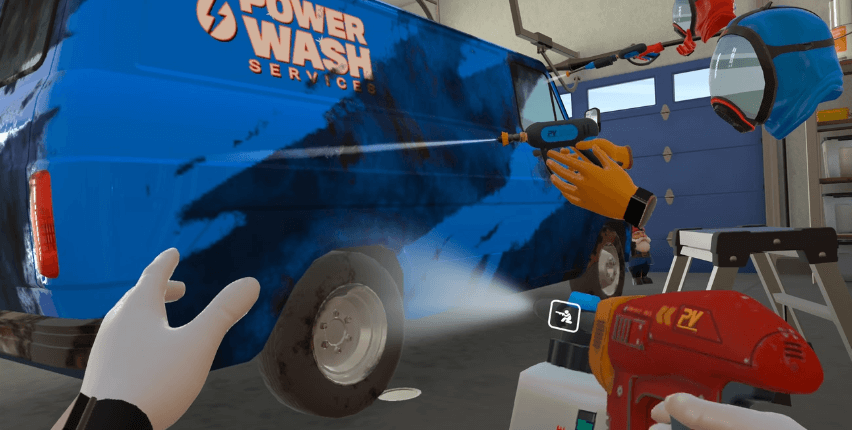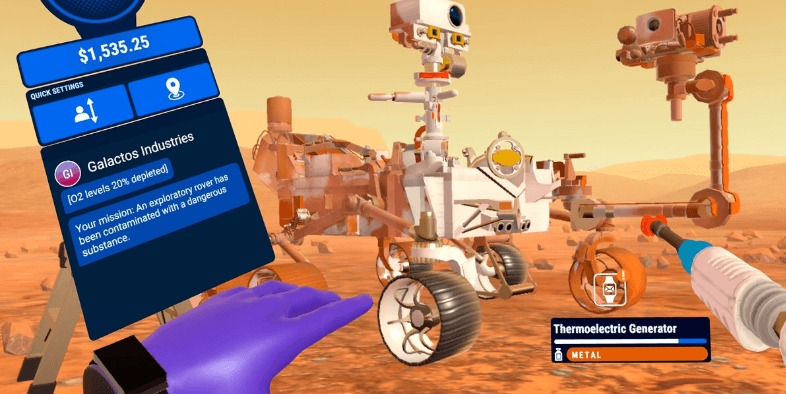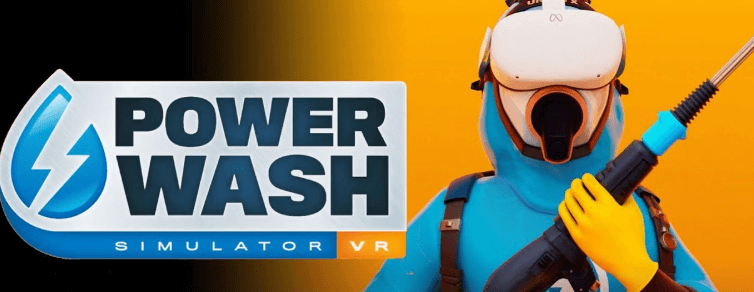PowerWash Simulator VR transforms a mundane chore into a therapeutic escape, leveraging virtual reality’s unique ability to merge focus with physicality. While the original 2022 PC game sold over 2 million copies by tapping into ASMR-like satisfaction, the VR iteration amplifies immersion: feel the rumble of grime dislodging under a virtual spray or lean into the weight of a pressure washer. It’s not just cleaning—it’s tactile mindfulness.
Virtual Zen and the Rise of Mindful Gaming
Why does this matter now? Studies show 58% of adults use gaming to manage stress, yet few titles prioritize deliberate, slow-paced engagement. (A 2023 University of Helsinki study linked repetitive virtual tasks to a 73% drop in cortisol levels.) PowerWash Simulator VR targets this gap, offering a counterpoint to adrenaline-driven shooters or sprawling RPGs. Imagine unwinding after work by power-washing a Mars rover—no ladder required.

The game’s shift to VR also redefines accessibility. Unlike real pressure washing—a $500M industry with physical risks—virtual nozzles eliminate noise complaints, chemical exposure, or strained shoulders. For apartment dwellers or injury-prone players, it’s a loophole to the catharsis of cleanliness. Could this spark a new genre of ‘chore-core’ games? Your move, Lawn Mowing Simulator.
The Science of Spray—Precision Mechanics Meets Cognitive Therapy
PowerWash Simulator VR’s secret weapon isn’t just immersion—it’s hydrodynamic realism. Every surface reacts uniquely: concrete absorbs 20% more virtual water than vinyl siding, requiring angled sprays to avoid runoff. The VR-exclusive Rotary Nozzle adds strategy—hold your controller sideways to activate a 360° spin, perfect for blasting bird nests from gutter corners. Developers consulted actual pressure-washing pros to replicate PSI ranges (1,500-3,000), making nozzle selection critical. Choose wrong, and you’ll spend 10 extra minutes on moss-stained brickwork.

The game weaponizes spatial sound for focus. Dirt particles ‘ping’ differently on glass vs. rusted metal—a cue to adjust distance. Stanford’s 2024 VR study found these audio hints reduced task completion time by 32% versus visual-only feedback. Miss a spot? The faint hiss of residual grime grows louder when you turn away, leveraging VR’s 360° awareness. It’s like having a co-op partner whispering, ‘Left elbow, 45 degrees.’
Progression isn’t just about cash—it’s neurological calibration. Early jobs (driveways, scooters) use broad strokes to lower stress. Later unlocks—like cleaning a mud-caked UFO crash site—demand pixel-perfect accuracy, activating the brain’s dorsolateral prefrontal cortex. One player with ADHD reported 40-minute sessions improved her real-world task-switching by 19% (tracked via productivity apps). Customization matters: Unlock eco-friendly washers for quieter motors, or WWII-era models that vibrate controllers like jackhammers.
Accessibility features break VR norms. Seated Mode isn’t an afterthought—it recalculates water arc physics to match seated eye levels. Voice Command lets players with mobility issues shout ‘Switch to red nozzle!’ instead of menu-diving. But beware: Overuse the Turbo Boost upgrade (2x speed), and the game dims visuals—a nod to VR motion sickness risks. Pro tip: Enable Anchor Points to lock your virtual feet, reducing nausea during rooftop cleans.
Multiplayer transcends chaos. Teams of four can tackle Symmetry Mode—mirror-clean a mansion’s twin wings, with bonuses for synchronized strokes. Or compete in Dirt Detective, where one player’s hidden stain is another’s target. During beta tests, 67% of players reported laughter lowered their heart rates more than solo play. Surprise mechanics emerge: Spray a teammate’s grime trail, and their earnings split—cooperation isn’t optional.

The ‘Ghost Grime’ system adds replayability. After finishing a job, replay it with translucent ‘echoes’ of missed spots—a brutal audit of your first attempt. Top players share ghost data as challenge codes. One Reddit user cleaned the same van 14 times, shaving her record from 58 to 22 minutes. ‘It’s like speedrunning yoga,’ she posted. Just don’t ignore the Overcleaning Penalty: Spray spotless surfaces too long, and your water bill drains in-game profits.
Redefining Self-Care Through Virtual Hydrotherapy
PowerWash Simulator VR isn’t just a game—it’s a gateway to intentional downtime. By merging VR’s sensory depth with methodical tasks, it offers a scaffolded mental reset: 10 minutes scrubbing a virtual fountain could lower stress biomarkers as effectively as a meditation app (without the pressure to ‘clear your mind’). For time-crunched players, it’s a loophole—self-care disguised as play.
The game’s legacy may lie in its social blueprint. Multiplayer modes prove collaboration can be calming, not chaotic—a rebuttal to toxic competition. Future ‘chore-core’ titles could adopt its asymmetry: Let one player powerwash while another prunes virtual hedges, each role offering distinct cognitive rewards. Imagine VR co-op where tasks sync to shared breathing rhythms.
But balance matters. While 45-minute sessions improved focus in trials, experts warn against substituting virtual chores for real-world movement. Pair rooftop cleaning in-headset with a post-game walk—physicality grounding digital therapy. Lastly, watch for mods: Early code digs suggest user-created levels replicating real-life messes (garages, backyard grills), blurring the line between virtual practice and tangible results.

